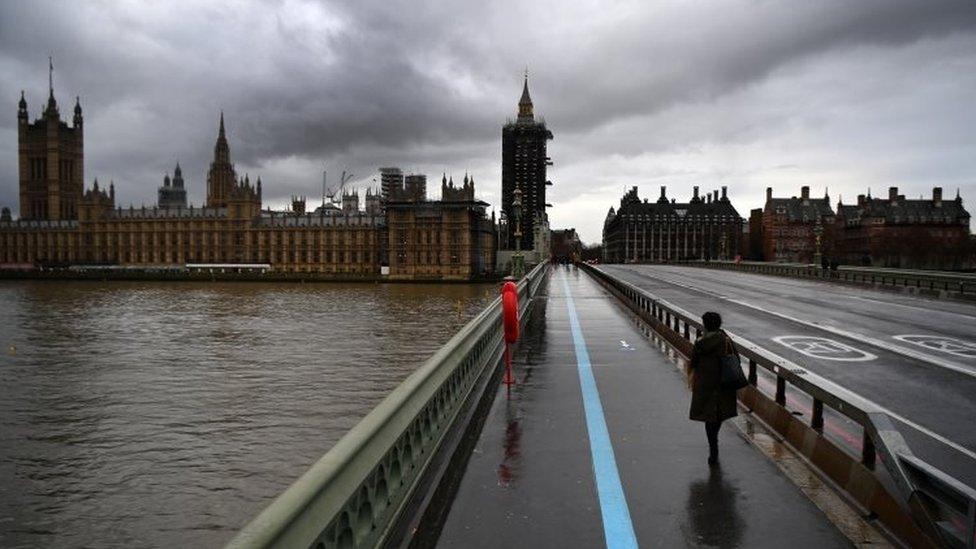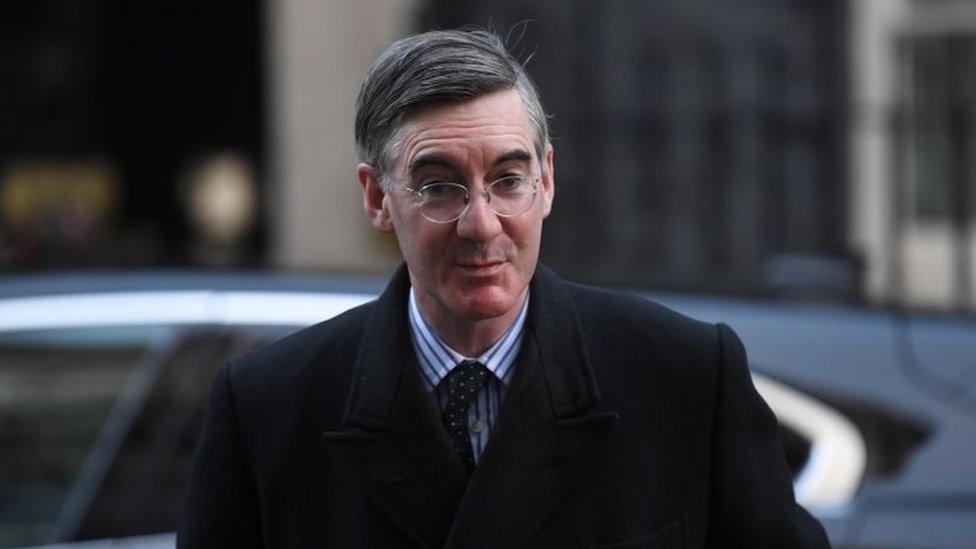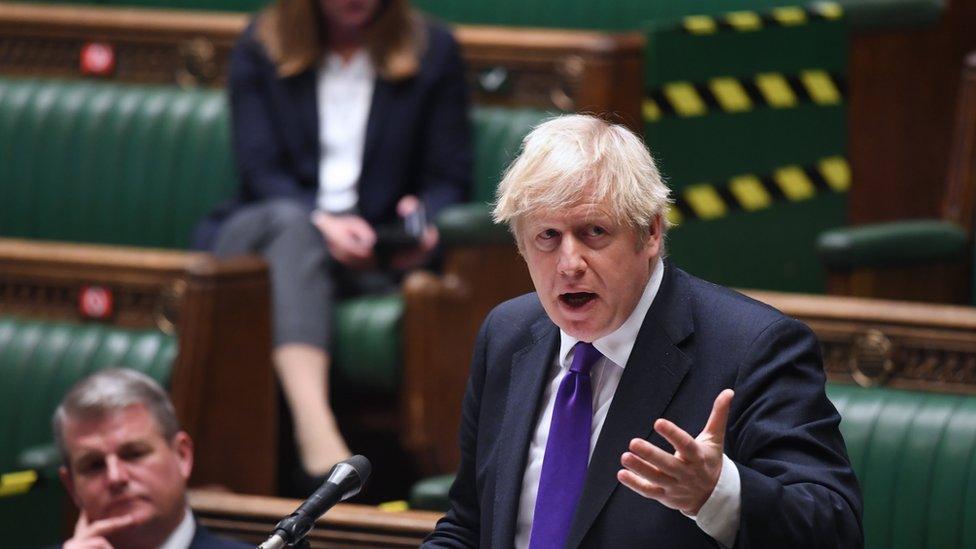What are the chances of MPs being recalled?
- Published

Parliament is supposed to be on its Christmas/New Year break until 5 January, but even before the current Covid-19-borders crisis, there was always the expectation that MPs and peers could be summoned back to debate an 11th hour Post-Brexit trade agreement.
Now, with millions under severe restrictions and border closures against the new fast-spreading Covid variant, there are new and urgent subjects to be discussed.
Labour leader Sir Kier Starmer has said "there is a case to look at whether we should recall Parliament" over the latest Covid developments and MPs like 1922 Committee grandee Charles Walker and former Chief Whip Mark Harper want a chance to debate and vote on the tough new restrictions the government has announced.
Remember, these restrictions came with Parliament in recess, just days after the PM denounced Labour for wanting to "cancel Christmas".
Public opinion
Public Administration Committee chairman William Wragg has called this an "an Olympic medal-winning-cartwheeling-somersaulting volte-face," a remark which gives some idea of the level of angst building up on the Tory benches.
Some want to debate the border situation, particularly in Kent, and others may want to call for an extension of the Brexit transition period; but wishes don't recall Parliament, ministers do.
Specifically, a minister of the Crown must request the Speaker to recall MPs.
The Speaker then considers whether this would be in the public interest (it's hard to imagine a situation where a minister would ask for a recall and the Speaker denied them).
Typically, the prime minister phones the Speaker and the discussion actually revolves around timing and process issues.
But the gaping hole in this process is that there is no mechanism for anybody but the government to bring Parliament back from a recess early.
So, if ministers don't want MPs debating some holiday crisis, MPs don't come back.
The only constraint is public opinion, and a clamour for Parliament to return that is too intense for a government to ignore.
'Superspreader' event
And it's hard to see such a bandwagon gaining momentum with the distractions of Christmas just days away.

Jacob Rees-Mogg is not a fan of remote voting
In current circumstances, there are further complications; it would be legal for MPs to travel to their place of work - the Commons chamber - even though it's in a tier four area, because they can't perform their full representative role from home.
But there would be considerable concern about any debate becoming a "superspreader" event in its own right.
Even before the news about the new Covid variant emerged, the Speaker, Sir Lindsay Hoyle, was concerned to minimise footfall in the Parliamentary estate, and doubtless he will be pondering whether it changes the number of MPs who can be allowed in the chamber safely.
Then there are the current rules for debate.
MPs can participate remotely in "interrogatory proceedings" which means question times, statements and urgent questions; they cannot speak in debates on legislation, which includes debates on, for example Covid regulations.
Irate backbenchers
There are already plenty of MPs who have to shield, and who believe they, and through them, their voters, are disenfranchised. Watch figures like Tracey Crouch, Cheryl Gillan, John Baron and Procedure Committee chair Karen Bradley.
During the first lockdown, MPs were permitted to vote online, but at the moment they can only vote by proxy, which is why the government Deputy Chief Whip, Stuart Andrew, currently wields around 250 votes.
To be sure, he has to cast the proxy votes according to the dictates of their owners, even if they are votes against the government, but it's still an uncomfortable look.
MPs voted to put these rules in place, so they cannot be changed without a further vote.
Up to now, Commons leader Jacob Rees Mogg has been firmly against changing them to allow remote participation and remote voting again.
And if he does not relent it is unlikely that the rules could be changed - the government controls the Commons agenda and there would be no way to get the issue debated, certainly on the day of a recall, without their agreement.
Mr Rees-Mogg has now written to Karen Bradley to say the government plans to allow online participation in all Commons debates, when the House next sits. But he wants to keep the proxy voting system in place rather than allow online voting by MPs.
UPDATE: The Hansard Society's Dr Ruth Fox points out that, given the time constraints of a short sitting intended to agree a bill to implement a future relationship treaty with the EU, a motion for the immediate resumption of full virtual proceedings could be agreed fairly rapidly.
The requirement for a quorum of 40 MPs (including tellers and the Speaker) has been modified to allow proxy votes to count toward the quorum.
That would allow the Whips to use proxy votes to secure the necessary motion.
- Published30 December 2020

- Published27 November 2020
- Published2 December 2020

